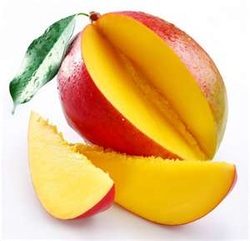
Where African Mango Originate?
African mango is a kind of fruit similar to mango that is grown from a tree called Irvingia Gabonensis in West Africa. Inhabitants of the place have been using the seeds of African mango in remedying illnesses and diseases. From this, the seeds are prepared as African mango supplements to address health problems on weight loss, cholesterol and diabetes.
How African Mango Seeds Fight Off Health Problems?
The healing ability of Irvingia gabonensis comes from its seeds which are believed to be high in fiber content. The fiber, like how it works, scrapes down the toxins out from the body and facilitates the removal of bad cholesterol. In addition, producers of the weight loss supplement suggest that the seeds might also contribute in reducing body fats by breaking down fat calls and minimizing fat cell growth.
What are the Studies Revealed about African Mango Extracts?
As to make inquiry if there are studies made for African mango seeds, yes, they were. These studies showed that the seeds ofIrvingia gabonensis might increase the good cholesterol levels of the body; reduce weight in obese people; and manage diabetes. However, all these studies are low quality and lack of support. Therefore, more evidences and proofs are needed for the uses of the seeds.
What are the Side Effects and Healthy Dose of African Mango Extracts?
Reported side effects of Irvingia gabonensis include headaches, flatulence and sleep problems.
For the dosage, a dose of 1 gram of seed extract three times (or 150 mgs twice a day) daily is sufficient to help reduce weight loss and cholesterol levels.
Conclusion
Taking into account that many Africans have used the seed extracts in healing numerous diseases, it can be said that African mango seeds are possibly safe to use. To ensure good health, the seeds must only be taken by adults. It is better to stay on the safe side and avoid harm.
African mango is a kind of fruit similar to mango that is grown from a tree called Irvingia Gabonensis in West Africa. Inhabitants of the place have been using the seeds of African mango in remedying illnesses and diseases. From this, the seeds are prepared as African mango supplements to address health problems on weight loss, cholesterol and diabetes.
How African Mango Seeds Fight Off Health Problems?
The healing ability of Irvingia gabonensis comes from its seeds which are believed to be high in fiber content. The fiber, like how it works, scrapes down the toxins out from the body and facilitates the removal of bad cholesterol. In addition, producers of the weight loss supplement suggest that the seeds might also contribute in reducing body fats by breaking down fat calls and minimizing fat cell growth.
What are the Studies Revealed about African Mango Extracts?
As to make inquiry if there are studies made for African mango seeds, yes, they were. These studies showed that the seeds ofIrvingia gabonensis might increase the good cholesterol levels of the body; reduce weight in obese people; and manage diabetes. However, all these studies are low quality and lack of support. Therefore, more evidences and proofs are needed for the uses of the seeds.
What are the Side Effects and Healthy Dose of African Mango Extracts?
Reported side effects of Irvingia gabonensis include headaches, flatulence and sleep problems.
For the dosage, a dose of 1 gram of seed extract three times (or 150 mgs twice a day) daily is sufficient to help reduce weight loss and cholesterol levels.
Conclusion
Taking into account that many Africans have used the seed extracts in healing numerous diseases, it can be said that African mango seeds are possibly safe to use. To ensure good health, the seeds must only be taken by adults. It is better to stay on the safe side and avoid harm.
 RSS Feed
RSS Feed